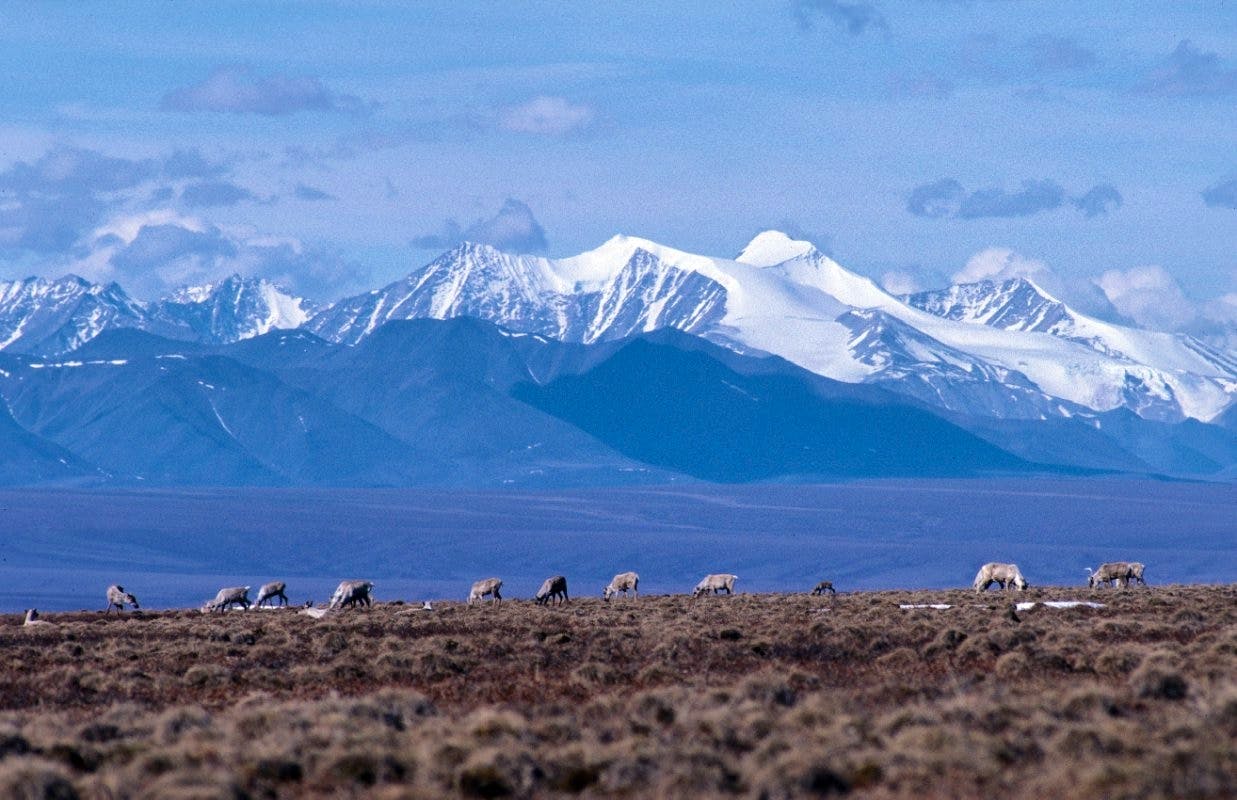WASHINGTON (July 18, 2017) – The House Budget Committee released a draft of its budget resolution today ahead of tomorrow’s consideration of the measure. The budget would enable the House Natural Resources Committee to authorize drilling in the Arctic National Wildlife Refuge (ANWR) through an expedited budget process. The State of Alaska, its congressional delegation and oil interests have pushed for decades to open the coastal plain of the Arctic refuge to harmful resource extraction despite lower demand for oil and the catastrophic damage to this untouched region if an oil spill were to occur.
Statement from Former Defenders of Wildlife President and CEO Jamie Rappaport Clark:
“The proposed budget is a direct attack on the crown jewel of our National Wildlife Refuge System and another clear attempt to sell out our federal public lands to 'Big Oil'. Some misguided lawmakers in Congress only see the Arctic National Wildlife Refuge as an oil patch for corporate interests to drill for fossil fuels, but it is so much more.
“The Arctic National Wildlife Refuge is an international treasure on the same scale as the Serengeti in Africa. There is simply no place like it in the world. The refuge supports polar bears, migrating caribou herds, musk oxen, brown bears and migratory birds from all 50 states, all in one spectacular landscape. We owe it to ourselves and to our children to keep this irreplaceable part of our natural heritage safe from oil drilling.
“We urge every Member of Congress who supports wildlife to fight this proposal and protect the legacy of one of America’s greatest natural treasures.”
Background:
At more than 19 million acres, the Arctic National Wildlife Refuge is the crown jewel of the National Wildlife Refuge System. It is also one of the last intact landscapes in America, home to 37 species of land mammals, eight marine mammals, 42 fish species and more than 200 migratory bird species. Established in 1960 to protect its extraordinary wildlife, wilderness and recreational qualities, the Arctic refuge is a place where natural processes remain mostly uninfluenced by humans.
The 1.5 million acres coastal plain is the biological heart of the Artic National Wildlife Refuge. It is the principal calving ground for one of North America’s last great caribou herds; our country’s most important onshore denning habitat for polar bears; and an avian nursery for migratory birds that travel to all 50 states. This wild sanctuary is so special that a comprehensive scientific assessment recommended it receive the highest level of protection– congressional wilderness designation.
Nevertheless, the coastal plain has for decades been a target for oil and gas development. Oil drilling would require harmful seismic blasting and create a vast industrial complex across the coastal plain, forever destroying this pristine wildlife haven. Although the majority of Americans oppose drilling in the Arctic National Wildlife Refuge, the fossil-fuel industry and the Alaska congressional delegation have again set their sights on opening the coastal plain to development, which would require passage of federal legislation. The state would likely receive 90 percent of the government revenues generated from drilling.
President Trump’s FY2018 federal budget included a proposal that Congress open up the irreplaceable coastal pain to resource extraction. On May 31, 2017, Secretary Ryan Zinke signed a Secretarial order pushing for further energy development in the National Petroleum Reserve – Alaska (NPRA) and requiring an update of the resource assessments for the Coastal Plain or "1002 area" of the Arctic National Wildlife Refuge.
For over 75 years, Defenders of Wildlife has remained dedicated to protecting all native animals and plants in their natural communities. With a nationwide network of nearly 2.1 million members and supporters, Defenders of Wildlife is a leading advocate for innovative solutions to safeguard our wildlife for generations to come. To learn more, please visit https://defenders.org/newsroom or follow us on X @Defenders.
News

Defenders Receives Advocacy Organization of the Year Award

